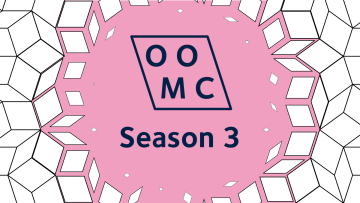Preparing for Prelims and Part A exams
Preparing for Prelims and Part A exams
This session will offer guidance for Prelims and Part A students preparing for closed-book, in-person exams this summer, with tips on revision and information about practical arrangements. If you have questions, please send them in advance (by 28 February) via https://vevox.app/#/m/170975861 and we'll try to address as many as possible during the session.
A separate session in Week 6 will be aimed at students doing Part B, Part C and MSc exams.
Abstract
Preparing for Prelims and Part A exams with Dr Vicky Neale
Description: This session will offer guidance for Prelims and Part A students preparing for closed-book, in-person exams this summer, with tips on revision and information about practical arrangements. If you have questions, please send them in advance (by 28 February) via https://vevox.app/#/m/170975861 and we'll try to address as many as possible during the session.
A separate session in Week 6 will be aimed at students doing Part B, Part C and MSc exams.
Preparing for exams with A4 summary sheets
This session will offer some tips on preparing the A4 summary sheets permitted for Part B, Part C and MSc exams this summer. It will also include wider advice about preparing for and sitting in-person exams. If you have questions, please do send them in advance (by 21 February) via https://vevox.app/#/m/174169279 and we'll try to address as many as possible during the session.
This session is aimed at Part B, Part C and MSc students sitting exams this summer. A separate session in Week 7 will be aimed at Prelims and Part A students.
Non-intersecting Brownian motion and compact Lie groups
Abstract
In many contexts a correspondence has been found between the classical compact groups and certain boundary conditions -- $U(n)$ corresponding to periodic, $USp(2n)$ corresponding to Dirichlet, $SO(2n)$ corresponding to Neumann and $SO(2n+1)$ corresponding to Zaremba. In this talk, I will try to elucidate this correspondence in Lie theoretic terms and in the process relate random matrix theory to Yang-Mills theory, free fermions and modular forms.
16:00
Exact QFT duals of AdS black holes
It is also possible to join virtually via Teams.
Abstract
Recently, it has been more clearly understood that the N=4 superconformal index leads to the microstate counting of the BPS black holes in AdS_5 X S^5. The leading N^2 behavior of the free energy was shown in various ways to match that of the known BPS black hole in the gravity side, but this correspondence has not been realized at the level of the saddle point analysis of the full matrix model for the N=4 index. Here, I will try to clarify how such saddles corresponding to the BPS black holes arise as 'areal' distributions. The talk is based on https://arxiv.org/abs/2111.10720 with Sunjin Choi, Seok Kim, and Eunwoo Lee; https://arxiv.org/abs/2103.01401 with Sunjin Choi and Seok Kim.
What do you need to join the Oxford Online Maths Club?
Nothing, except a little curiosity. We're live at 5pm UK time every Thursday. Today we will be featuring Vicky Neale investigating square numbers, plus lots of your live chat (& curiosity).
In addition, last week's show on Platonic Solids is available to watch any time along with 20 other back episodes.
OOMC: the club the whole world can join.
Open questions on protein topology in its natural environment.
Abstract
Small angle x-ray scattering is one of the most flexible and readily available experimental methods for obtaining information on the structure of proteins in solution. In the advent of powerful predictive methods such as the alphaFold and rossettaFold algorithms, this information has become increasingly in demand, owing to the need to characterise the more flexible and varying components of proteins which resist characterisation by these and more standard experimental techniques. To deal with structures about little of which is known a parsimonious method of representing the tertiary fold of a protein backbone as a discrete curve has been developed. It represents the fundamental local Ramachandran constraints through a pair of parameters and is able to generate millions of potentially realistic protein geometries in a short space of time. The data obtained from these methods provides a treasure trove of information on the potential range of topological structures available to proteins, which is much more constrained that that available to self-avoiding walks, but still far more complex than currently understood from existing data. I will introduce this method and its considerations then attempt to pose some questions I think topological data analysis might help answer. Along the way I will ask why roadies might also help give us some insight….
Homotopy, Homology, and Persistent Homology using Cech’s Closure Spaces
Abstract
We use Cech closure spaces, also known as pretopological spaces, to develop a uniform framework that encompasses the discrete homology of metric spaces, the singular homology of topological spaces, and the homology of (directed) clique complexes, along with their respective homotopy theories. We obtain nine homology and six homotopy theories of closure spaces. We show how metric spaces and more general structures such as weighted directed graphs produce filtered closure spaces. For filtered closure spaces, our homology theories produce persistence modules. We extend the definition of Gromov-Hausdorff distance to filtered closure spaces and use it to prove that our persistence modules and their persistence diagrams are stable. We also extend the definitions Vietoris-Rips and Cech complexes to closure spaces and prove that their persistent homology is stable.
This is joint work with Nikola Milicevic.


